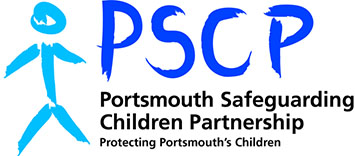A new life in the UK
The Bilingual Learning Assistants (BLAs) at EMAS have, over many years, helped hundreds of children and parents new to the UK.
We asked them about their own experiences and those of their friends and below is some information they found helped them settle here.
The English Language
- Start learning English as soon as possible; this will set your children a good example and will help you communicate with their school.
- Don’t worry about making mistakes, that’s how you will learn.
- Keep using your first language at home; the stronger the native language is, the easier it is to learn the second language.
- Talk to English people as well as speakers of your own language. Don’t isolate yourself or only mix with your own community.
- Surround yourself with things that will challenge your speaking, listening and literacy skills in English (e.g. TV, books, websites, newspapers, writing a journal etc.).
- Look for free or affordable English lessons as well as online learning apps and lessons on YouTube. If you already speak some English, it may take you a while to get used to the Portsmouth accent and the local grammar and vocabulary and you may find that people speak very fast!
Daily life
- There is lots of information about life in the UK on council and government websites, e.g. about work, schools and the National Health Service (NHS).
- Try and find a doctor’s surgery (a GP) and a dentist as soon as you arrive.
- Be prepared for many things to be done in a different way from your home country. Learn about and accept these differences.
- Familiarise yourself with the laws and cultural expectations. For example, British people are very polite; saying ‘please’ and ‘thank you,’ being punctual and queuing are very important. British people also have a good sense of humour!
- Ask for help if you need it. You can ask people from your own community or English-speakers; there are many people who will be happy to help.
- Try British food, music, TV programmes… it helps understand this new culture. But cherish your own culture and customs. You are now part of a multicultural society.
School
- The education system may be very different; ask questions, look at the school website and learn the routines and expectations day-by-day.
- Mix with other parents. Start by speaking to other mums and dads you see at the school gate, even if you just say ‘hello’.
- Parents are expected to take part in the life of the school. Join in with parent activities and accept any invitations to attend events (e.g. assemblies, plays, concerts, sports days, cake sales, curriculum workshops, parent evenings, requests for helpers etc). This will improve your English skills, get you meeting people and teach you about the education system.
- Don’t expect your children to learn English straightaway. They will also have to settle into their new school and make friends. They will need encouragement from you; don’t put them under pressure.
- Trust the learning abilities of your children. They will spend at least six hours a day in an English-speaking environment and will eventually learn the language.
- Give your children time to relax at home, let them speak in first language so they can tell you what they did at school and ask you about things they didn’t understand.
- Be aware that being a child in a class, where you don’t speak the language, is exhausting. The children put in a lot of effort and concentration, so it is physically and mentally tiring. Don’t expect them to do hours of homework, they need time to rest.
Your new city
- Go out as a family as much as you can, so the children can associate their new home with positive experiences.
- Explore what Portsmouth has to offer (libraries, museums, the beach, parks etc).
- Portsmouth is a diverse city. Be open-minded about meeting people from different backgrounds, religions and cultures. Learn things about them and teach them something about your rich culture.
- If you aren’t working, try and find a volunteering role. It will help your English and can be a way into paid employment.
- Get involved, accept invitations, embrace all the great things Portsmouth has to offer! The city, and the UK in general, is a very vibrant place so make sure you enjoy it and make the most of it. Eat the food, see the sights and learn the history.
Finally...
- Try to be patient because it takes time to settle in a new country.
- Remember that children learn by example so they will be encouraged if you have a positive attitude.
- Whenever you feel discouraged or feel that things are not going well, remember why you decided to move to the UK and focus on that. There are also lots of sources of support for you – always talk to someone if you feel down.
- Thousands of people have moved to the UK and now live happy, successful and fulfilled lives. It may take a while, but things will work out and you are doing the best you can for your family.
Contact details for more information and support
Karen Thomas – Manager and Lead Adviser
Ethnic Minority Achievement Service (EMAS)
Children, Families and Education
Portsmouth City Council
Civic Offices
Guildhall Square
Portsmouth PO1 2AL
Telephone: 023 92733130
Email: karen.thomas.emas@portsmouthcc.gov.uk
Website: EAL Portsmouth – The home of Portsmouth EMAS
